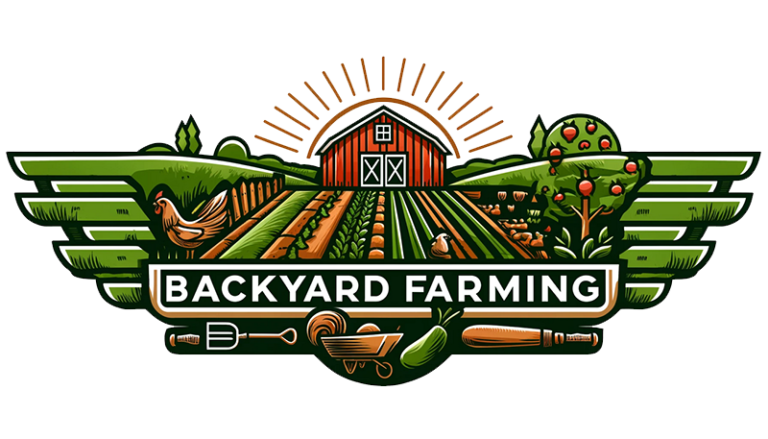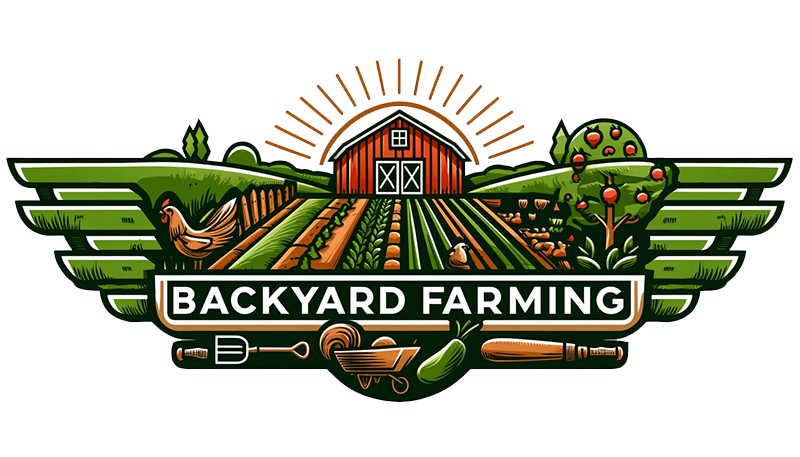Welcome to Backyard Farming Life, where we empower you to transform your backyard into a thriving food-producing farm. In this comprehensive guide, we’ll explore the common mistakes that backyard farmers often make and how to avoid them. Whether you’re a beginner or an experienced farmer, this article will provide invaluable tips and insights to enhance your farming practices. Let’s dive in and discover the key considerations for successful backyard farming.
Avoiding Common Mistakes in Backyard Farming
Overlooking Site Selection and Layout
When venturing into backyard farming, one common mistake is overlooking the significance of site selection and layout planning. The site’s location, orientation to sunlight, soil quality, and access to water are crucial factors that directly influence the success of your farm. Neglecting to assess these elements thoroughly can have detrimental effects on crop growth and overall productivity.
Proper site selection involves careful consideration of the terrain, microclimate, and natural features of the area. The topography of the land, including slopes and natural water drainage, plays a vital role in determining the suitability of a site for farming. Additionally, the proximity of trees and other structures can affect the amount of sunlight and wind exposure to the crops. By thoroughly evaluating these aspects, you can maximize the use of natural resources and create an optimal growing environment.
Layout planning is equally important as it determines the organization of different farm components. This includes the positioning of planting beds, pathways, water sources, and infrastructure such as sheds or greenhouses. An efficient layout not only enhances the functionality of the farm but also contributes to the aesthetic appeal. Careful placement of different elements can streamline farm operations and create a visually pleasing and harmonious environment. Moreover, considering future expansion and changes in the layout at the planning stage can save time and resources in the long run.
Neglecting Soil Testing and Preparation
Neglecting Soil Testing and Preparation
Another critical oversight in backyard farming is neglecting soil testing and preparation. The condition of the soil directly affects the health and yield of your crops. By conducting soil tests and implementing appropriate soil preparation techniques, you can create an optimal environment for plant growth. Failure to address soil quality can lead to nutrient deficiencies, poor drainage, and subpar crop performance.
When it comes to neglecting soil testing and preparation in backyard farming, the repercussions can be significant. Soil testing provides crucial information about the composition and fertility of the soil, including pH levels, nutrient content, and potential contaminants. Armed with this knowledge, farmers can tailor their approach to soil preparation, ensuring that it is appropriately amended and conditioned for the specific crops they intend to grow. Neglecting this step can result in unforeseen challenges during the growing season, such as stunted growth, susceptibility to diseases, and inadequate nutrient uptake.
Furthermore, soil preparation is not a one-size-fits-all endeavor. Different crops have distinct soil requirements, and preparing the soil accordingly can make a substantial difference in their overall health and productivity. This involves the application of organic matter, such as compost and manure, to improve soil structure and fertility. Additionally, the consideration of soil pH and the incorporation of appropriate amendments are vital aspects of effective soil preparation.
It’s important to recognize that soil preparation is an investment in the future success of your crops. While it may require additional time and effort initially, the payoff in terms of healthier plants and higher yields is well worth it. By addressing soil testing and preparation as integral parts of backyard farming, you pave the way for a thriving and sustainable growing environment that supports the long-term viability of your agricultural pursuits.
Ignoring Proper Planting and Maintenance Practices
When it comes to backyard farming, overlooking proper planting and maintenance practices can have detrimental effects on the overall health and productivity of your crops. It’s crucial to pay close attention to the details of planting depth, spacing, and timing to ensure that your plants have the best opportunity to thrive. Planting depth directly impacts the development of roots and the stability of the plant. Improper spacing can lead to competition for resources and hinder healthy growth. Timing is equally important, as planting too early or too late in the season can expose plants to unfavorable conditions.
In addition to planting, the maintenance of your crops plays a significant role in their well-being. Insufficient watering, whether it’s too much or too little, can result in stress, diseases, and poor yield. Pruning is essential for shaping plants, removing dead or diseased parts, and promoting air circulation. Neglecting pest control can lead to devastating consequences, as pests can quickly multiply and damage your crops if left unchecked.
- Planting Depth: Ensure that you research the specific planting depth requirements for each type of plant you’re cultivating.
- Spacing: Consider the mature size of the plants and follow spacing recommendations to prevent overcrowding.
- Timing: Take into account the climate and expected weather patterns to determine the optimal planting times for different crops.
- Watering: Implement an appropriate watering schedule based on the needs of your plants, taking into consideration factors like soil type and weather conditions.
- Pruning: Learn proper pruning techniques for different types of plants and incorporate regular maintenance into your farming routine.
- Pest Control: Stay vigilant for signs of pests and diseases, and take proactive measures to address any issues before they escalate.
Neglecting Livestock Care and Health
Neglecting Livestock Care and Health
When integrating livestock into backyard farming, it is imperative to prioritize their care and health. Neglecting these aspects can lead to detrimental consequences for the animals and the overall productivity of the farm. Let’s delve deeper into the critical components of livestock care:
Appropriate Shelter and Housing:
Providing adequate shelter and housing is fundamental to the well-being of livestock. This encompasses protection from extreme weather conditions, adequate space, and suitable bedding to promote comfort and minimize stress. Livestock require a safe and secure environment to thrive and exhibit healthy behaviors.
Nutrition and Feeding:
Proper nutrition is essential for the overall health and productivity of livestock. It is crucial to ensure a balanced and nutritious diet that meets the specific dietary needs of each type of animal. Neglecting their nutritional requirements can result in health issues, decreased productivity, and susceptibility to diseases.
Health Inspections:
Regular health inspections are vital for early detection and prevention of diseases in livestock. This proactive approach allows for timely intervention and treatment, thereby minimizing the spread of illnesses and promoting the well-being of the animals.
Mental and Behavioral Well-being:
Often overlooked, the mental and behavioral well-being of livestock is crucial for their overall welfare. Enrichment activities, adequate socialization, and a stress-free environment contribute to their emotional and psychological health, ultimately impacting their overall productivity and well-being.
As we conclude this insightful exploration of common mistakes in backyard farming, it’s evident that mindful planning, attention to detail, and proactive management are keys to success. By avoiding the pitfalls discussed and implementing best practices, you can elevate your backyard farming endeavors to new heights. Embrace the learning journey and continue to discover innovative methods that align with sustainable and fruitful farming practices. Here’s to your thriving backyard farm!

